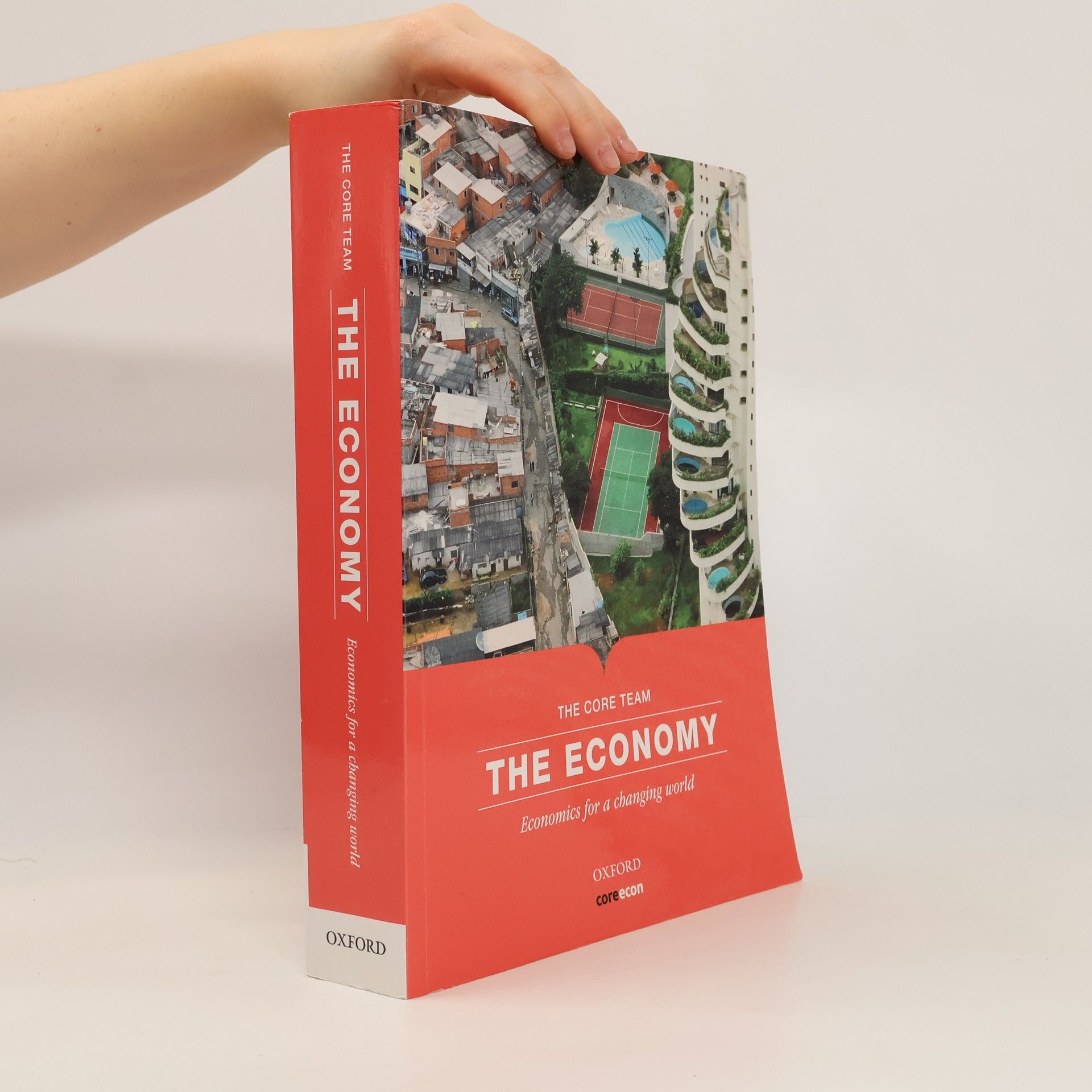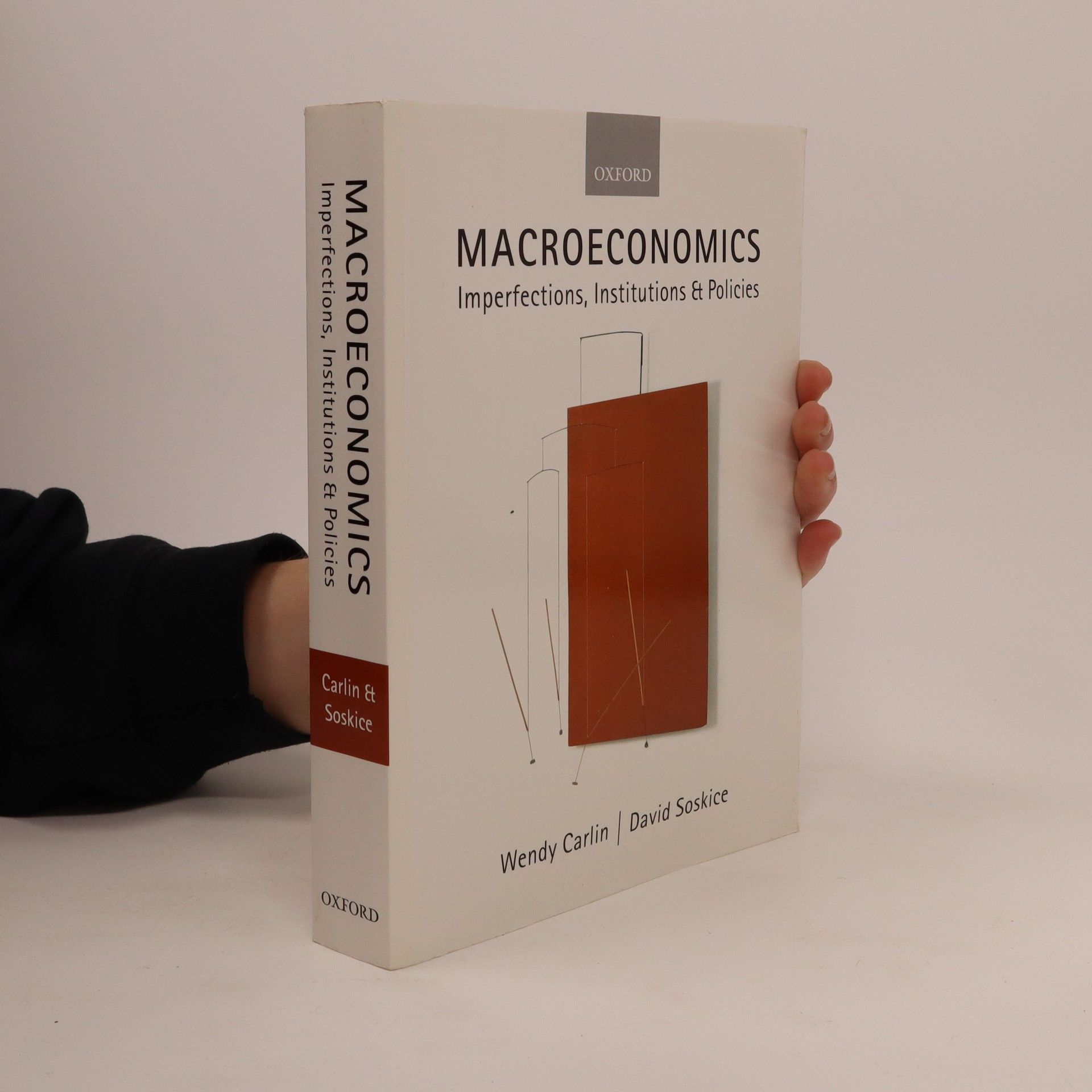This volume provides a unified framework for the analysis of short- and medium-run macroeconomics. It develops a core New Keynesian macro model based on imperfect competition and nominal rigidities and shows how this compares with alternatives
Wendy Carlin Boeken



Macroeconomics
Institutions, Instability, and Inequality
The book introduces a 3-equation model that integrates the financial system and addresses inequality, providing students with a practical framework to tackle ongoing macroeconomic challenges. By connecting contemporary research and policy, the authors equip readers to understand and analyze the implications of the financial crisis and the Great Recession, fostering critical thinking in macroeconomic theory and practice.
In 2014, when we published the first beta of The Economy online, Camila Cea provided a preface. At the time, she was a recent economics graduate, but already a veteran of a successful protest movement in Chile that was advocating policies to advance economic justice. She and her fellow students at the University of Chile had been shocked to discover their economics courses addressed none of their concerns about the problems of Chile’s economy. They demanded changes in the curriculum. The director of the School of Economics and Business at the time, Oscar Landerretche, responded to their demands. Camila and Oscar are both now Trustees of CORE Economics Education.Since then, courses based on CORE’s text have been taught as the standard introduction to economics at University College London, Sciences Po (Paris), the Toulouse School of Economics, Azim Premji University (Bangalore), Humboldt University (Berlin), the Lahore University of Management Sciences and many other universities throughout the world. In July 2017, as we write this, 3,000 economics teachers from 89 countries have registered for access to our supplementary teaching materials.Camila’s perspective on The CORE Project at the beginning of our journey captures the motivation that continues to inspire us. She wrote:We want to change the way economics is taught. Students and teachers tell us this is long overdue. When the Financial Times in the UK wrote about CORE in November 2013, it sparked an online debate about teaching and learning economics that attracted 1,214 posts in 48 hours. Students in economics all over the world were asking, just as I had asked a few years previously: ‘Why has the subject of economics become detached from our experience of real life?’Nataly Grisales, like me an economics student from Latin America, recently wrote about learning economics on her blog: ‘Before I chose economics a professor mentioned that economics would give me a way to describe and predict human behaviour through mathematical tools. That possibility still seems fantastic to me. However, after semesters of study I had many mathematical tools, but all the people whose behaviour I wanted to study had disappeared from the scene.’Like Nataly, I remember asking myself if my economics classes would ever get around to addressing the questions that motivated me to take up economics in the first place.And that’s why my colleagues in the CORE team have created this material. It has made me believe again that studying economics can help you to understand the economic challenges of the real world, and prepare you to confront them.Please join us.Camila and Nataly did not get the best that economics has to offer. CORE’s mission is to introduce students to what economists do now, and what we know. Today, economics is an empirical subject that uses models to make sense of data. These models guide government, business, and many other organizations on the trade-offs they face in designing policies.Economics can provide tools, concepts and ways to understand the world that address the challenges that drive students like Nataly and Camila to the subject. Sadly, they are often not a big part of the courses that thousands of students take.In the four years that The CORE Project has been running we have tried an experiment in classrooms around the world. We ask students: ‘What is the most pressing problem that economists should address?’ The word cloud below shows the response that students at Humboldt University gave to us on the first day of their first class in economics. The size of the word is proportional to the frequency with which they mentioned the word or phrase.